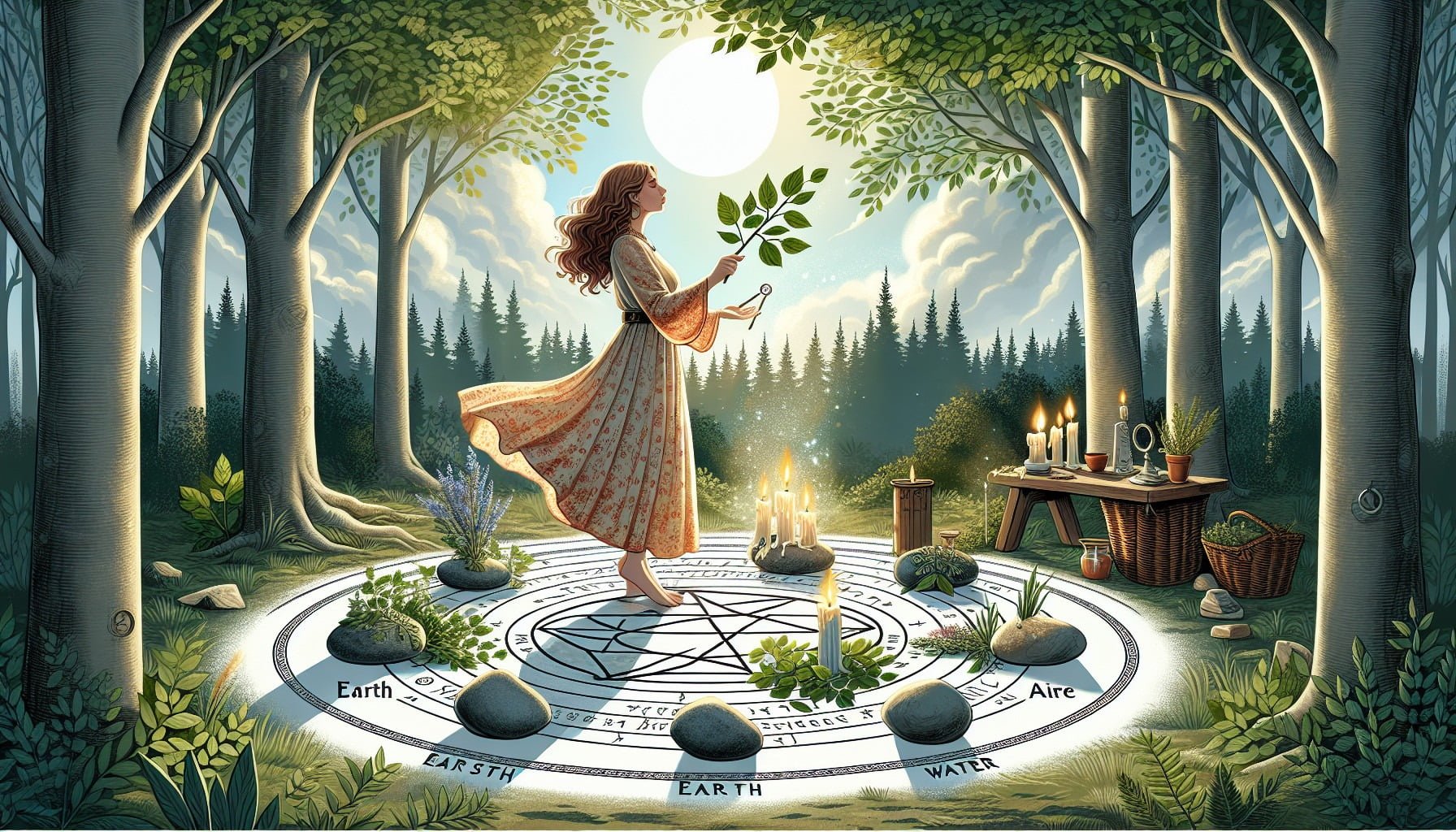Close your eyes for a moment and visualize a vast universe throbbing with mystical energy. This omnipresent energy weaves itself into every molecule and fiber of existence, connecting all beings in a dense web of interdependence and intimacy. This is the fundamental worldview of Wicca, a modern pagan, witchcraft religion that celebrates nature, the cycles of life, and magical practices. This relatively new spiritual path, primarily encompassing Western countries, evolved in the first half of the 20th century and was officially recognized as a religion in the 1950s.
At its core, Wicca is a deeply individualistic and polytheistic faith that reveres the divine as manifest in both masculine and feminine forms. The central deities of Wicca are the Goddess, often linked with the Moon, Earth, and Stars, and the Horned God, associated with the Sun, wilderness, and virility. However, the religion also recognizes the existence of numerous other deities plucked from various ancient, indigenous faith systems. Each Wiccan is free to choose their own pantheon and personalize their spiritual practices. It’s much like a vibrant, spiritual mosaic, with each practitioner selecting their own rich panoply of symbols, gods, and practices to form a personal tapestry that resonates with their unique spiritual needs and perceptions of the world.
Eclectic elements aside, what truly sets Wicca apart from many mainstream religions is its focus on nature, the environment, and the cycles of life and death. Wiccans see divinity not as a distant, aloof figure but as an intimate part of the Earth and its cycles. Its practices and rituals often change with the seasons, celebrating the dance of the Sun and the Moon, the mysteries of life, death, and rebirth, and the ebb and flow of nature. The Eight Sabbats- Samhain, Yule, Imbolc, Ostara, Beltane, Midsummer, Lammas, Mabon – celebrated by Wiccans throughout the year are a testament to this deep connection to nature’s seasons and cycles.
In Wicca, magic is viewed as a natural law, not unlike gravity, an inherent element of the universe that can be harnessed through the practice of witchcraft. Wiccans believe the manipulation of this unseen energy can bring change in the physical world. This is achieved through the casting of spells or the performance of rituals, which involve the invocation of deities, the use of certain tools, and adherence to specific practices. The most important thing to remember about Wiccan magic, however, is the Wiccan Rede, “An it harm none, do what ye will”. This moral code means that Wiccans can only perform magic in a manner that does not cause harm to others.
Much like every other religion, Wicca also embraces a particular philosophy and morality. The faith abides by the Threefold Law, a karma-like belief asserting that the energy a person emits into the world, good or bad, will be returned to them threefold. Furthermore, Wicca encourages its followers to lead a fulfilling life that is in harmony with nature and the world around them. The religion emphasizes the importance of personal responsibility, the pursuit of knowledge and wisdom, and respect for all life. Wicca doesn’t believe in concepts like sin or absolute evil. Instead, it views actions lying outside the boundaries of harmlessness and respect for others as self-defeating and counterproductive.
Wicca is far from being a monolithic faith. It’s a fluid religion with diverse traditions and solitary practitioners, all bringing their own interpretations to the foundational beliefs and practices. Some popular Wiccan traditions include Gardnerian Wicca, Alexandrian Wicca, Dianic Wicca, and Celtic Wicca, each with its unique characteristics and emphasis. Many Wiccans choose to practice solitarily, piecing together their own spiritual path from books, teachings, personal insights, and experience. This kind of independent seeking is not only accepted within Wicca, but actively encouraged.
Wicca, in essence, is not just a religion, it is a way of life, blended seamlessly with the rhythms of the natural world. It encourages curiosity, exploration, reverence for the divine in its myriad forms, and a life in line with the sacred cycles of Mother Earth. Whether you are considering adopting Wicca as your spiritual path or simply gaining a deeper understanding of this fascinating faith, embracing its teachings can anchor us more profoundly within the mysteries of existence, conjure a deeper connection with nature and remind us of the magic we often forget resides in the world around us. |
Lilly Dupres
Owner & AuthorLilly Dupres, a lifelong practitioner of paganism, established Define Pagan to offer a clear definition of paganism and challenge misconceptions surrounding modern pagan lifestyles.



















